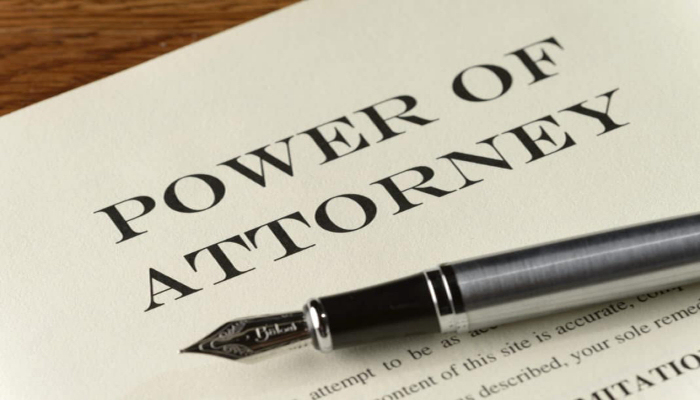A power of attorney is a legal document that gives one person certain rights and responsibilities, the agent, over the person who had the document prepared, the principal. There are generally two different types of power of attorneys: a power of attorney for financial reasons and a power of attorney for healthcare matters (Advance Directive). These documents are generally prepared separately, even if the same person is named as the agent in both documents.
Durable Power of Attorney
In general, a power of attorney does not require the principal to be in any way incapacitated. A person may want a power of attorney because he or she will be traveling and wants someone to handle financial affairs on his or her behalf. In some states, incapacitation will make the power of attorney invalid. A “durable” power of attorney allows a person to retain the status as an agent even if the principal does become incapacitated. Therefore, the instrument remains effective even if the principal can no longer make decisions.
Separate from the standard (general) power of attorney, designating a durable power of attorney elects that person to make your decisions in the event of mental incompetence. For a power of attorney to be considered a durable power it must specifically allow for decision making in the event of mental incapacity. Decision making under a durable power attorney may include legal, medical or financial decisions. Cancellation of the durable power of attorney occurs at death. The person chosen to be your durable power of attorney, also known as the agent, may make decisions as they please as long as the decision fulfills their fiduciary duty to make good faith decisions on your behalf.
While financial expertise may not be required for this role, it is important that the agent be someone whom the principal trusts to manage his or her finances in a conscientious manner that would be similar to the principal’s personal philosophies. Additionally, the durable power of attorney for financial matters may use the principal’s assets to hire professionals who can assist with these tasks and who may have more experience doing so.
Advance Directive
Advance Health Care directives outline how you wish to proceed with your health care in the event you become unable to voice your opinion. Injury or illness including psychiatric conditions may leave you unable to make medical decisions. An advance directive puts in writing exact instructions on how to handle your health care. Your directive is your road map to document how you want to be treated medically… Do you want life support? Do you want tube feeding? Do you have different choices in different medical circumstances? What about if you have dementia and cannot feed yourself? This document allows you to make your choices now, while you are able to, and also to name the trusted persons whose duty is to communicate your wishes in the Advance Directive to your doctors if you cannot.
Part of your Estate Plan
Use the durable power of attorney and advance directive in conjunction to ensure you receive the care you desire. Enacting only one leaves you half covered. The Advance Directives covers your medical wishes, and the durable power of attorney deals with your financial needs.

